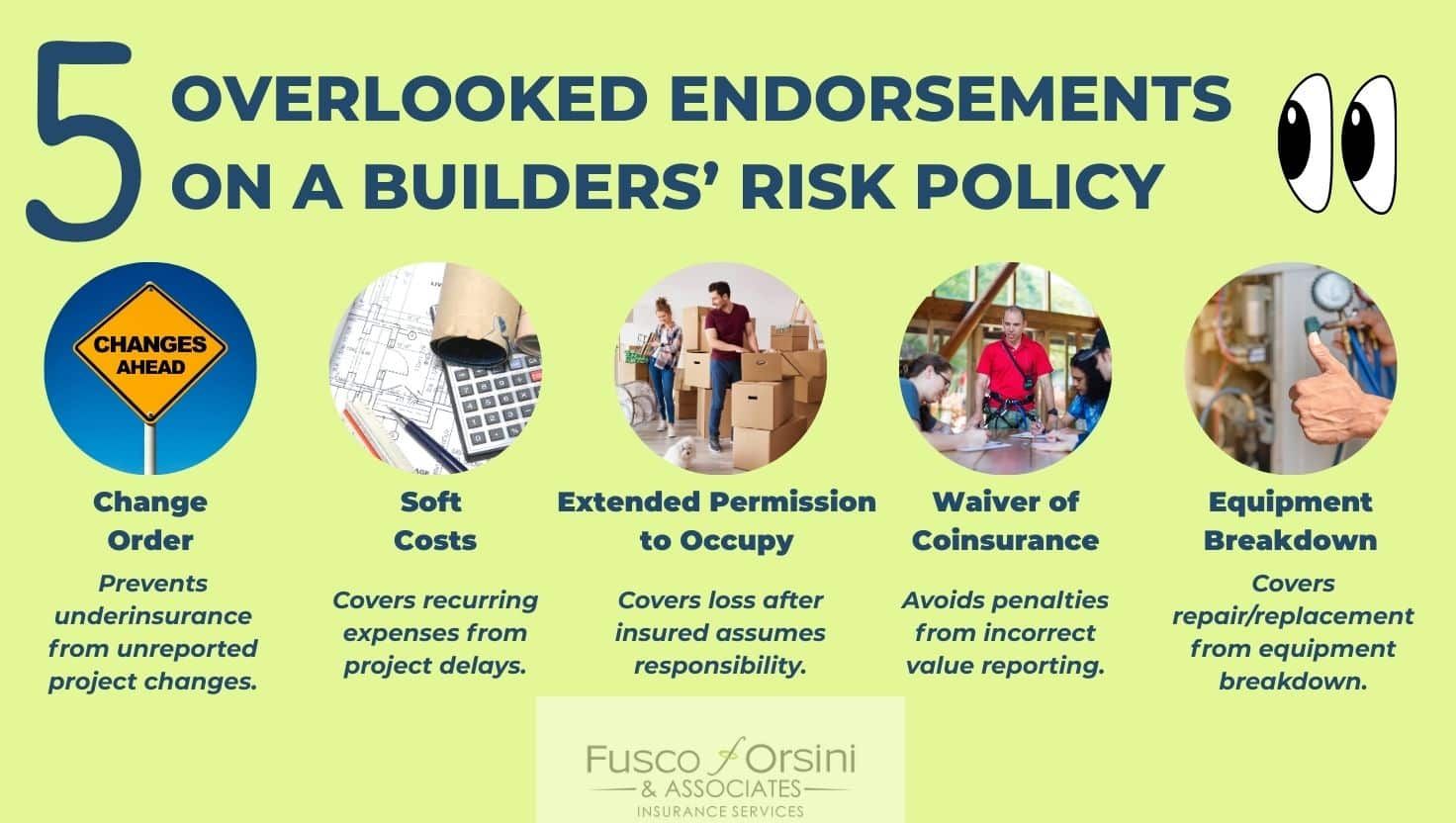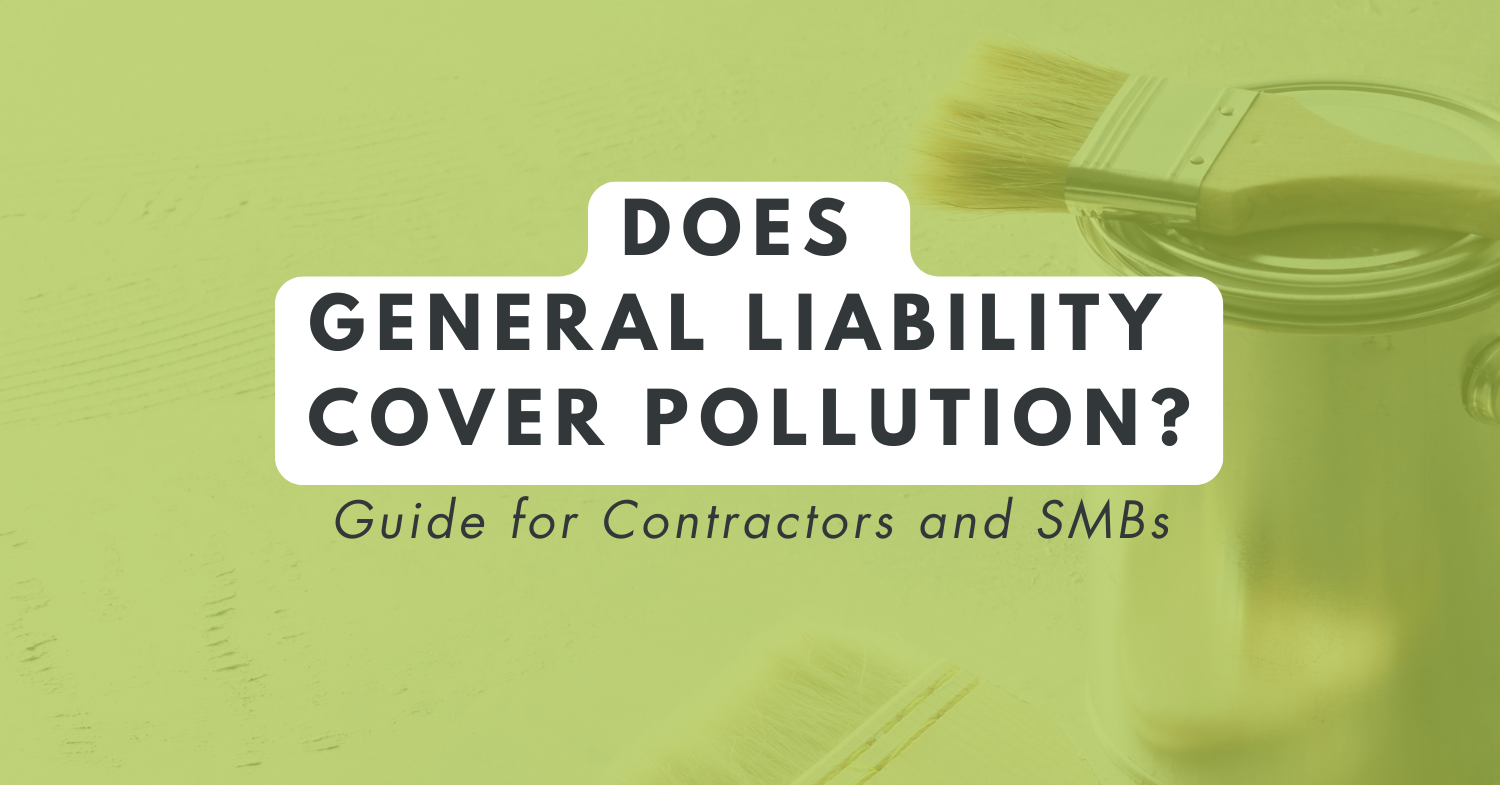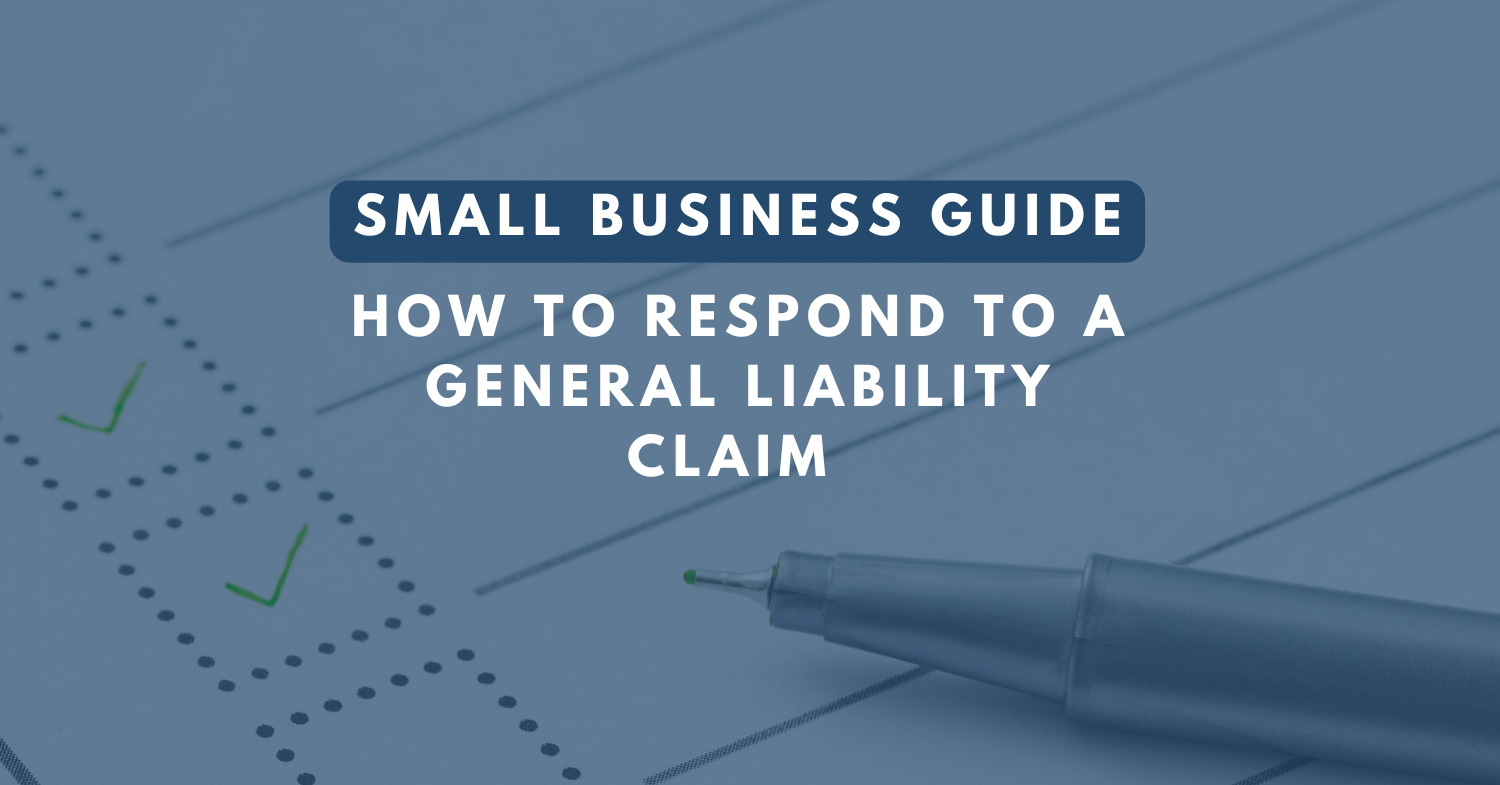5 Builders Risk Policy Endorsements You Should Never Overlook
See How We're Different
or call us: (858) 384‑1506
Myth: Only large corporations or those prone to natural disasters need BCPs.
Small businesses often have limited capital, which is one of the biggest reasons they should get a BCP. According to Zywave, “multiple studies found that between 40% and 60% of small businesses fail shortly after experiencing a crisis.” A BCP can help you protect your profits, people, and operations and bounce back when a disruption occurs.
Myth: BCPs aren’t worth the time, effort, and cost.
You truly cannot afford not to have a BCP. Remember, one event, such as halted operations or a fine for non-compliance, could lead to millions of dollars in losses.
Myth: Backing up critical data is good enough.
Data backups aren’t good enough, nor is a BCP limited to technology-related disruptions. A good BCP should help protect your company’s entire operational framework and infrastructure.
Builders risk insurance is an essential protection for contractors, developers, and property owners!
Construction is complex. Every project is different; timelines shift, materials change, and budgets evolve. A builders’ risk insurance policy helps protect the financial investment in a construction project, but even comprehensive coverage can fall short if key endorsements are missing. These overlooked additions can mean the difference between being reimbursed for a costly delay or facing significant out-of-pocket expenses.
Builders’ risk policy endorsements are essential for contractors, developers, and property owners who want to safeguard their construction projects from start to finish. While a standard policy offers broad coverage, there are specific situations that require tailored protection. You may be left exposed to some of the most critical phases of your project without these endorsements.
This guide explores five often-overlooked builders’ risk policy endorsements that can protect against budget overruns, construction delays, legal risks, and equipment breakdowns. Whether managing a significant commercial development or overseeing a residential renovation, these additions can help ensure your policy truly fits your needs.
Why Builders Risk Policy Endorsements Matter
Builders’ risk insurance typically covers damage to buildings under construction due to fire, theft, vandalism, weather events, and certain types of accidental loss. However, standard policies do not account for all the variables involved in modern construction projects. Endorsements have become important in filling these coverage gaps.
Endorsements are custom additions to your policy that expand or clarify coverage. They reflect your project’s specific conditions and address common financial gaps that could otherwise expose you. For example, if you extend your construction timeline or your budget increases due to design changes, your original policy may no longer reflect the true value of the risk.
Understanding and selecting the right builders’ risk policy endorsements is crucial for contractors, developers, and property owners who are serious about risk management.
Before we break down each endorsement, here is a quick visual summary of the five most essential builders’ risk insurance endorsements every construction project should consider:

1. Change Order Endorsement
Construction projects rarely proceed exactly as planned. Design modifications, material upgrades, and scope changes are common and often incur increased costs. A change order endorsement ensures that your policy reflects these updates by adjusting the total insured value of the project.
Without this endorsement, you risk underinsuring your project. In the event of a loss, your claim payment may not fully cover the increased costs associated with unreported changes. The change order endorsement is crucial if your contract value increases during the build. Insurers may apply coinsurance penalties if the policy limit does not accurately reflect the final completed value.
Change order endorsements are typically available in increments of ten, twenty, or thirty percent of the total insured value. They apply to residential and commercial projects, and we use them most commonly in single-shot policies where changes are frequent.
Key Benefits:
- Prevents underinsurance from budget increases
- It helps avoid coinsurance penalties
- Protects agency liability during claims
2. Soft Costs Endorsement
Soft costs are indirect expenses unrelated to physical construction that can accumulate rapidly with project delays. Examples include loan interest, architectural and engineering fees, legal costs, advertising, and permit fees. These costs often continue during a delay, which can significantly affect the overall financial outcome of the project.
A soft costs endorsement covers these expenses if a covered loss causes the delay. Soft cost coverage is especially valuable in large-scale commercial or custom residential projects where even minor delays can trigger thousands of dollars in recurring expenses.
Insurers may require a breakdown of projected soft costs, especially if the requested limit exceeds twenty percent of the total completed value. A detailed cost allocation ensures that the right level of coverage is applied and that reimbursements can be processed smoothly in the event of a claim.
Key Benefits:
- Covers indirect costs during project delays
- Reduces financial strain on developers and owners
- Enhances financial predictability during delays
3. Extended Permission to Occupy
Construction delays are common, and there may be instances where an owner or tenant occupies the property before construction finishes. Standard builders’ risk coverage typically ends when the occupant moves into the building, but the risk does not disappear. An extended permission to occupy endorsement offers limited coverage during the transitional period when the owner or developer assumes legal responsibility for the property.
This endorsement is crucial for construction projects or phased developments where tenants move in before construction ends on the entire structure or project. Without this addition, any loss occurring after occupancy but before permanent insurance takes effect could be excluded from coverage.
It is designed for new construction or major remodels insured under a single-structure policy. It provides a safety net when timelines blur and occupancy happens ahead of full project closeout.
Key Benefits:
- Maintains coverage after the insured takes legal responsibility
- Supports seamless transition to permanent insurance
- Reduces coverage gaps during project completion
4. Waiver of Coinsurance
Coinsurance is a policy provision that requires the insured to maintain coverage equal to a certain percentage of the project’s total value. A coinsurance penalty may apply if the insured value is too low, reducing the claim payout. Estimating the exact value of a dynamic project can be difficult, and minor miscalculations can have significant consequences.
A waiver of the coinsurance endorsement eliminates this penalty if a loss occurs. For example, an insurance company we often utilize for builders’ risk insurance will adjust claims without applying the coinsurance condition for policies under certain forms. The endorsement is invaluable for smaller commercial projects or single-structure installations valued at up to ten million dollars.
This endorsement offers peace of mind for contractors and developers who must make quick decisions and might not always have perfectly accurate projections for every line item.
Key Benefits:
- Removes penalties from value estimation errors
- Simplifies claims process
- Protects small to mid-size projects from costly miscalculations
5. Equipment Breakdown Endorsement
Construction sites rely heavily on equipment and machinery, from HVAC systems to electrical panels. These systems are vulnerable to power surges, mechanical failure, or ruptures. Standard builders’ risk policies may not cover this loss unless it includes the equipment breakdown endorsement.
This endorsement reimburses repairing or replacing essential systems when damage results from an accidental breakdown. Covered incidents may include electrical currents, mechanical malfunctions, and centrifugal force ruptures.
However, this endorsement does not cover damage due to wear and tear, flooding, or issues discovered during testing. Understanding the limits and exclusions is vital to determine if this endorsement fits your risk profile.
Key Benefits:
- Covers high-cost repairs from system failure
- Protects against electrical and mechanical malfunctions
- Equipment breakdown applies to both residential and commercial projects
How to Choose the Right Endorsements
Selecting builders’ risk policy endorsements should be a strategic decision based on the unique characteristics of your construction project. Factors such as project value, complexity, timeline, and risk exposure will determine which endorsements are most appropriate.
Begin by consulting with an experienced insurance advisor who can help assess your specific needs. Our team works closely with contractors, developers, and property owners to customize builders’ risk coverage to align with their goals. We guide limit selection, documentation, and claims management to ensure complete protection throughout your project lifecycle.
Conclusion
Builders risk insurance is not one-size-fits-all. By incorporating these five essential endorsements, you can transform a basic policy into a comprehensive risk management tool. Change orders, soft costs, extended permission to occupy, waiver of coinsurance, and equipment breakdown endorsements address some of the most common and costly gaps in construction coverage.
Contractors, developers, and property owners cannot ignore these considerations in their insurance planning. A small oversight can lead to significant financial setbacks, while a well-structured policy can provide stability in uncertainty.
For more information about customizing your builders’ risk policy,
contact Fusco Orsini and Associates. Our advisors are here to help you build smarter, safer, and with confidence.







